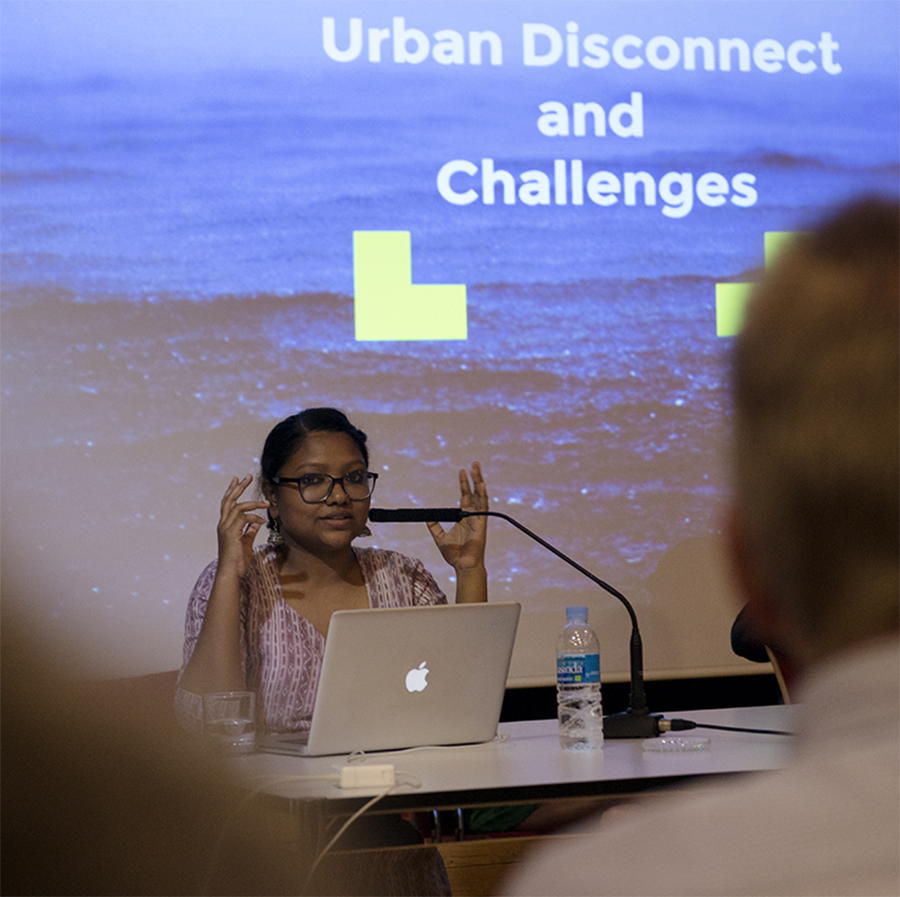
Lipika Singh Darai is a graduate in Audiography from the FTII. Apart from sound recording and design, she directs and edits documentaries and fiction films.
As a child what were your early influences towards cinema? Art, literature, graphics, photography?
I grew up in a few small towns in Odisha, mostly watching national TV channel DD-1 and hardly visiting cinema theatres. My father an easy going liberal man, a bank manager and mother, a very strict home maker, waiting for her two girls to grow up so that she could go back to her younger dreams, both being the first generation post graduates in their respective agrarian families. My maternal grand aunt and grand mother, two strong women in my life who lived in a remote village were my family extension and reason for beautiful earthy childhood memories. Around six years old, I started to learn Hindustani classical vocal, painting and occasionally Odissi dance. Training in music kept my mind mostly occupied as my mother was quite particular about my regular Reyaaz every morning around 5.30am, five days a week for years. I was about six years old when my music teacher Late, Prafulla Kumar Das was sixty. Little that I knew, music was shaping a new world inside me. I think, my first imagery from any of my imagination evolved through music, through sound while trying hard to understand what my music teacher was expressing.
From my childhood memory, I would bring out three scenes from three different films which had lasting impression on me. Woman turning into a tree in a deep forest, from the film “Cheluvi”, Man tiger dances on the drum beats and the villagers following him, from the film “Bag Bahadur” and Ajay Devgan, the Bollywood actor’s stunt standing on two running bikes, with loud music in the background from the film “Phool aur kaante”.
I was too busy with people and the world around me that I never got much time to read books, never liked still cameras, those consumer cameras which every middle class families had,I found a camera interfering and only for documentation of family occasions. I was fascinated by my painting teacher who always used to ask me to sketch the time you are in.
How did you first become interested in Audiography?
Most people dn’t know this field in cinema.
Even I didn’t know about “Audiography”. Though I always wanted to study music, I somehow ended up studying commerce in my graduation. All through my college, I was mostly busy in Art and cultural activities, youth festivals etc. While finishing my graduation, I applied for MBA courses just as a ritual and also applied for FTII (Film and Television Institute of India) after desperately looking for some media courses on the internet and by asking around. I seriously didn’t have any idea that FTII was a premiere film school in the country neither did I know what actually “Cinema” stood for.
I was always close to music and sound. I wanted to be in a field, where I would spend more time with music. The information on the website about the course seemed quite close to what I was looking for. I did some basic research whatever I could and I went for it. MBA took a back seat.
What step did you take to train yourself?
Listening is something that any sound person would have to learn or cultivate. Thankfully my ears were a little trained and sensitive towards tone, pitch, rhythm and the character of a sound while learning music. But I didn’t know how to place it in filmmaking. In my younger days, I did a few classical performances and in those,to me, you have to perform a story in a way, bringing newness through the energy in your voice, your experience in life to the same Raaga which had particular swara (notes) and particular chalan (style).So initially I tried to look at films as performances. I tried to understand it through my own references.
I never ignored the technique behind the production and spent hours in the sound studios while at the institute. A person like me, who never had a computer to herself before coming to the film school had to give enough time to get over the awkwardness with equipment.
Whatever potential sound work I have done, I worked as an Audiographer technically, but at the core always a story teller and a performer.
How did your first film come about? Tell us something about the experience.
My first film changed my life. I lived in Mumbai for a year or two after passing out of FTII, although because of a prolonged illness with Bell’s palsy I couldn’t work much. I was supposed to work with the eminent filmmaker late Mani Kaul as a sound designer for his feature film and I was really excited about the project. We had many conversations around the film. Eventually the film never happened because of his sudden demise. During that time, I was planning to record my childhood music teacher’s voice, as he hardly had any recordings made. It was a gap of more than a year that we hadn’t spoken and when I went to visit him, I came to know that he was no more. It was devastating and may be for the first time I lost someone very close to me. At 28, I could realize how big a part of my life he was. I wanted to capture that time, my feelings, my urge to get him back or capture his presence in someway, may be to shoot something, spend time with his wife but I was not sure. When I spoke to Mani Kaul, he said, just go ahead with a camera and follow yourself…you will find him. I wanted to document certain things and keep it for myself. But a year later there was a 27min long film. The film got me the best debut film of a director award in the national film awards, India and somehow my journey in filmmaking started there.
The film was funded and supported by my friends and family and that was the beginning. My friend Veenu Bhushan Vaid, edited and funded the film and Viplab Majumdar, a senior friend from FTII gave enough strength and his editing set up for months. I already had an idea of how beautiful a feeling is to live your work. I wanted to make more films and look for more involvements. I just took a decision to leave Mumbai to work from my home state,Odisha .My friend, batchmate from FTII, my partner, cinematographer Indro, Indraneel Lahiri joined me in the journey. I think, FTII as a space, had already prepared us to take this step with courage.
Tell us something about your film “The Waterfall”. How did it come about?
The waterfall is my first fiction, 21 min long short film, produced by LXL Ideas, School Cinema, which is awarded as the best educational film in the National Film Awards 2017.The film is directed and edited by me. The story revolves around a city boy Karun from Mumbai, who gets to know about a waterfall in Odisha which is drying up. His realization is the film. The film is in two versions, originally in English and dubbed in Hindi. This has been made specifically to be shown in thousand of schools across the country. I came across School Cinema films, while being a jury for a film festival (IFFI) in 2013. Since then I wanted to make a film for this young audience, million of school Children. Last year, when I was in Mumbai for some work, I approached them and we worked on two stories finally zeroing down on one.
LXL Ideas, the team and producer Sayed Sulatan Ahmed, brought in a lot of clarity in what kind of films they wanted to make for children. Their experience helped me immensely in creating walls and windows in my story. I wanted the film to be evocative, story to be humble at it’s core yet powerful in it’s depiction. In 20 min, how could I show the children a different side to the reality and completely make them involved with characters they would relate to and then very simply put my point forward, was my focus.
Recently the film was shown in the Indian Panorama, in IFFI 2017 to a house full Audience to an overwhelming response.
How do you decide on the sound design of a film, apart from what comes naturally from the script?
What are your inspirations?
It’s been almost five years, I am directing and editing my own films, specially documentaries and short films. I have also got the opportunities to edit, co-script and co-direct two feature length documentaries for other directors. For a few my projects, I have also done sound. Filmmaking is so demanding, and because I edit my films too, I have sort of stopped doing sound for others. Because my initial training is in sound recording and designing, most of the time I perceive a story with a potential amount of sound narratives and my edit follows the sound mostly.
First of all it depends a lot on the pitch of the film with respect to it’s audience and it’s idea. Once that is clear, you can work on your imagination. Some scripts have already preconceived sound design, which makes the work easier in a way. Challenge comes, while scripting, there is no planning of sound design. In that case, either the editor has to bring in elements to start an engagement with sound or the sound designer has to play with the texture and the depth of the sound which are there naturally in the story.
To me, sound can have it’s own narrative and presence just like visuals. I find sound more powerful than visuals in dealing with the audience’s psyche.
Is sound design intuitive or is it something you learn?
It’s an art. The ideas come from life most of the time. Being intuitive is very important but one can also learn to be intuitive in filmmaking. One needs to learn the technique and the possibilities of the medium. That gives much freedom and makes the canvas much wider for a sound designer or any creative person in this field.
What is your genre?
What genre do you enjoy much?
I like to get engaged in the conversations in a film. The genres that I enjoy as an audience most is a well written drama (satire/comedy/romance) and surreal.
During my film school days, I was quite moved by the filmmakers Krzysztof Kieslowski, Jim Jarmusch, Jafar Panahi and Werner Herzog.
As a filmmaker I find making documentaries more real and engaging.
What part does risk-taking play in your work, if any?
To be an independent filmmaker itself comes with a lot of uncertainties. Making choices is difficult and that is where risk taking plays a big role.
Any hurdle you have encountered in your journey?
Things that are blocks in achieving your vision while making your film.
Funds, most of the time in making a film. When me and Indraneel started working from Odisha, we didn’t know how to pitch for a film, because we didn’t work in the industry. We wanted to work independently. I didn’t know who would be interested in funding a film for me, who had a profile of a sound recordist, who hadn’t done much work, except a National award for sound for a student film project at FTII. Though after my first film, things became a little better.
Sometimes, the subject of a film demands a lot of introspection, time and emotional engagement. Like, in my last documentary film “some stories around witches” a 52 min long film ,produced by PSBT,India which deals with a few devastating witch-hunt cases from Odisha, I think, initially I was not prepared mentally to see things in perspective. The work needed much more time, funds, awareness about the social condition and emotional energy than I thought. At some point, you might feel blocked and have doubts on why are you making the film. But, then I think this is a part of the process and once you cross them, you come as more stronger.
Do you often get all that is in your wish list or is it a hard bargain overtime.
Sometimes I set small targets for me which I feel I can push myself a bit to achieve. My wish list always had mundane things.I don’t think, anything has ever come easy.It had it’s own share of hard work and waiting in some way.
But yes, time has been kind and magical enough.
For my second year Dialogue (Studio/Colour 35mm/13 mins) project at FTII, our team lacked a Direction batch student. It was agreed that Umesh Kulkarni would be our external Director for the film. I was very involved in the entire process of filmmaking from the beginning. The film Gaarud which came out was well received everywhere and me and my batchmate Deepu S. Unni won the National Film Award for Best Cinematography and Best Sound Design respectively.
In 2010,the film was selected to be screened in MIFF (Mumbai International Film Festival). It went on to win the Best Fiction film of the festval.
As the director of the film Umesh could not be present, I was asked to present the film in the festival. I was a bit nervous but I was overwhelmed by the mere power of standing by your film and presenting to a huge audience in the biggest Auditorium at NCPA, Mumbai. At a blink of a moment, right there I thought, I wish I would ever make my own film and present it to a wonderful audience as a director. Seven years down the line, for the first time two of my films, which I directed “ some stories around witches” in documentary category and “ The waterfall” in the fiction category have been just announced to be in the national competition in the very festival, MIFF 2018.
How was your participation in the recent Seoul Biennale of Arhitechture and Urbanism 2017 ?
It was really intense a process to understand our existence in the context of urbanism. The crowd was very different unlike film festivals. There was much more
than only film viewing. Artists, Architect,filmmakers all somehow tried to perform in public places, encouraging the spaces and people to participate in the process which was in it’s entirety making some kind of art work.From Rahul
Mehrotra’s talk on Kinetic City Mumbai to Yongwoo Lee’s Co-existence of futurism and Ethics,The Sanghai Project, the graph had aptly set the tone. We a team of three, a filmmaker/visual artist, an artist/performer and an city planner from Odisha, participated in a project called ‘The three way Dialogue”, conceived by a Seoul based artist Inyoung Yeo connecting three cities, Bhubaneswar(India), Hamburg (Germany) and Seoul (South Korea). We tried to express how we respond towards our respective urban challenges and transformations through art performances, art installations, panel talk, discussions and film screening. I presented a talk on the gentrification the city,Bhubaneswar has been witnessing as it slowly becomes one of the 100 smart cities in India. My film “Kankee O Saapo” (Dragonfly and Snake) was screened under the same project, as a part of the Biennale.The film was initially concieved as an installation during my participation in the project City as studio by SARAI,CSDS. The film is around the city, Mumbai and the physical and emotional distance between me and my Grand Aunt. Two screens run simultaneously throughout the film giving a sense of a letter having an imaginary conversation between us.
What is in the kitty now.
I have just finished a feature length documentary as an editor and co-director on the the life of the legendary sound recordist Late Mangesh Desai, directed by Subash Sahoo and funded by Sound Association, Mumbai. I am editing my feature length documentary on the puppeteers of Odisha funded by Films Division of India. Figuring out funds for future projects.
Any advice to the inspiring Audiographers?
These days, people are quite well informed about profession and market. At this point, in India there is a lot of diversity in films which is great. So as filmmakers, editors or audiographers, we can at least get projects once in a while of our choice. But to make your niche one needs to be consistent at the same time redefining his or her own work.
As a filmmaker I have started working with sound designers and what I would expect in a sound person other than a grip on his/her work is, passion for filmmaking or life.
Any memorable blunders?
I wish my blunders were magical.
Your dream project?
I want to be courageous as a filmmaker and an artist. I have just started. I do not have this idea of a dream project as such.I have kept enough space for uncertainties thinking this would help me to grow up. So may be in retrospect I can realise a project which was something like a dream project to me. I want to be able to use different mediums in story telling. At this point, given a chance I wish to assist a few directors like Nuri Bilge Cylon , Rebecca Miller and Andrea Arnold .Well it sounds achievable but a bit dreamy. I hope someday I could edit a film made by the Indian documentary filmmaker R.V Ramani and that would be surreal.
Trailer: Some Stories Around Witches
Trailer: The Waterfall
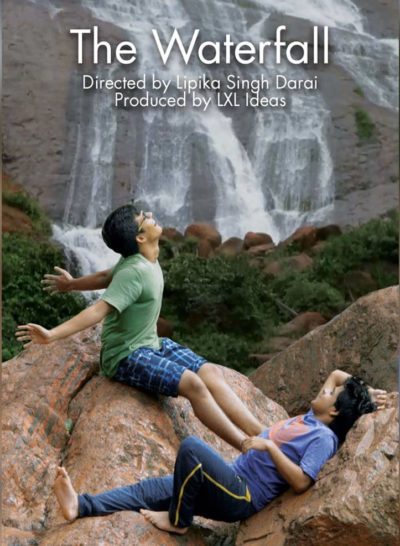
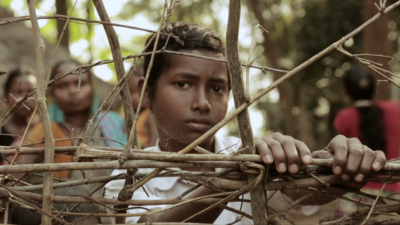

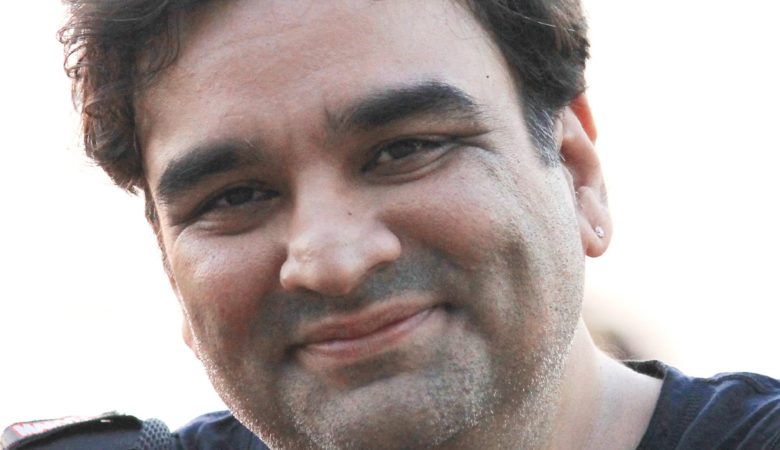
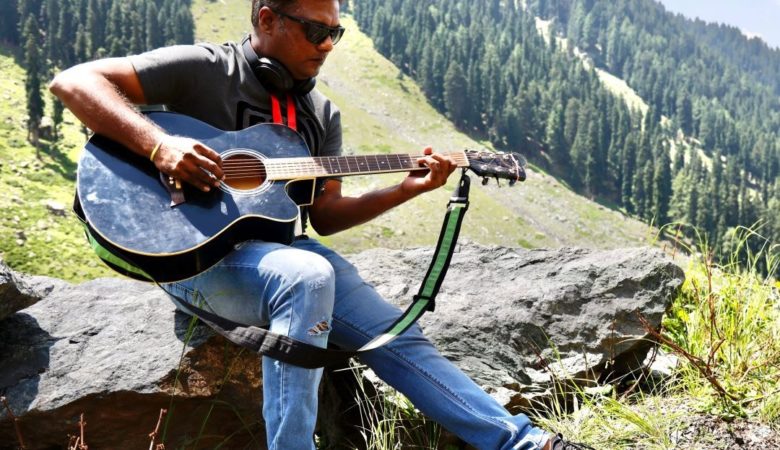
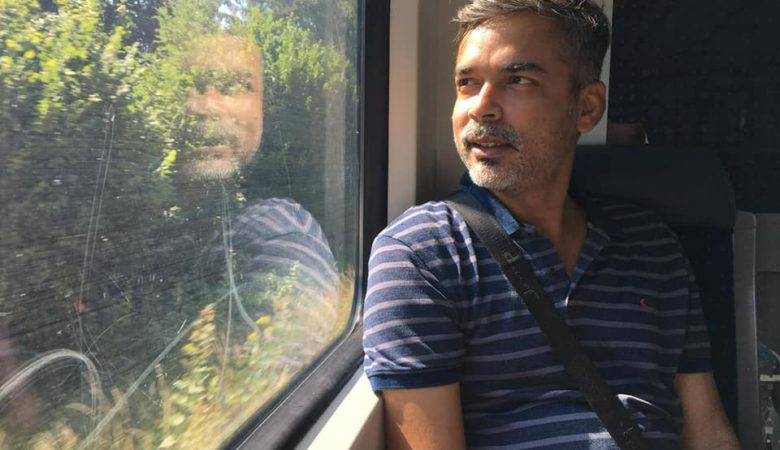
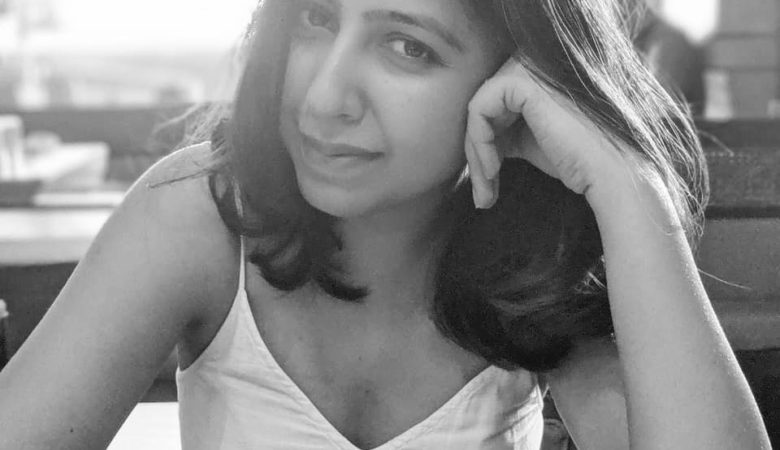



Leave a Reply